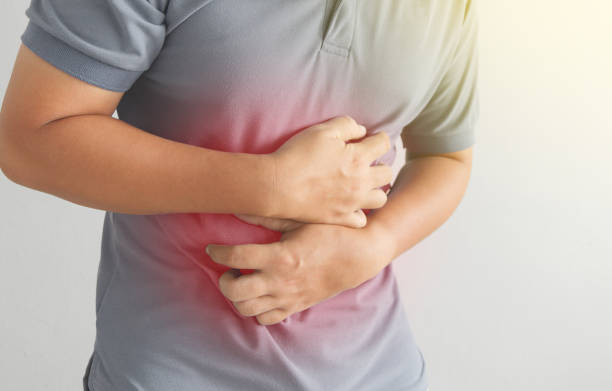
Definition:
An ulcer is an open sore or lesion that results from the loss of skin or epithelial tissue. Ulcers can occur on various parts of the body, but common types include peptic ulcers (occurring in the stomach or small intestine) and skin ulcers.
Historical Perspective:
- Peptic ulcers were historically thought to be caused by stress and spicy foods.
- In the 1980s, it was discovered that most peptic ulcers are caused by infection with Helicobacter pylori bacteria.
- Advancements in medical understanding have led to improved diagnostic and treatment methods.
Signs and Symptoms
Common Signs and Symptoms of Peptic Ulcers:
- Burning Pain: A burning sensation in the stomach or upper abdomen, often occurring between meals.
- Nausea and Vomiting: Discomfort and the urge to vomit may be present.
- Bloating: Feeling of fullness or bloating, especially after eating.
- Weight Loss: Unintended weight loss may occur.
- Bloody or Dark Stools: In cases of bleeding ulcers, stools may appear black or tarry.
Signs of Skin Ulcers:
- Pain or Discomfort: Persistent pain in the affected area.
- Open Sores: Visible breaks in the skin or mucous membranes.
- Redness and Swelling: Inflammation around the ulcerated area.
- Drainage or Pus: Fluid discharge from the ulcer.
Diagnosis
Peptic Ulcers:
- Endoscopy: Direct visualization of the stomach and small intestine using a thin, flexible tube with a camera.
- Biopsy: Tissue samples may be taken during endoscopy to test for H. pylori infection.
- Blood, Stool, or Breath Tests: Detecting H. pylori through different types of tests.
Skin Ulcers:
- Clinical Examination: Physical examination to assess the ulcer's characteristics.
- Imaging Studies: X-rays or other imaging methods to evaluate underlying structures.
- Blood Tests: To check for underlying conditions (e.g., diabetes).
Management
Peptic Ulcers:
- Antibiotics: To eradicate H. pylori infection.
- Proton Pump Inhibitors (PPIs): Reduce stomach acid production.
- H2 Blockers: Another class of medications that decrease stomach acid.
- Antacids: Provide relief by neutralizing stomach acid.
- Lifestyle Changes: Avoiding certain foods, managing stress, and quitting smoking.
Skin Ulcers:
- Wound Care: Cleaning and dressing the ulcer to promote healing.
- Topical Medications: Antibiotics or other topical agents to prevent infection.
- Compression Therapy: For venous ulcers, to improve blood flow.
- Offloading Pressure: For diabetic foot ulcers, reducing pressure on the affected area.
- Surgery: In severe cases, surgical intervention may be necessary.
Conclusion
Ulcers, whether peptic or skin-related, can significantly impact an individual's health and quality of life. Advances in understanding the causes and effective management strategies have improved outcomes for those affected by ulcers. Early diagnosis, appropriate medical intervention, and lifestyle modifications are crucial in the comprehensive management of ulcers. Individuals experiencing symptoms suggestive of ulcers should seek prompt medical attention for accurate diagnosis and tailored treatment plans.


No comments:
Post a Comment